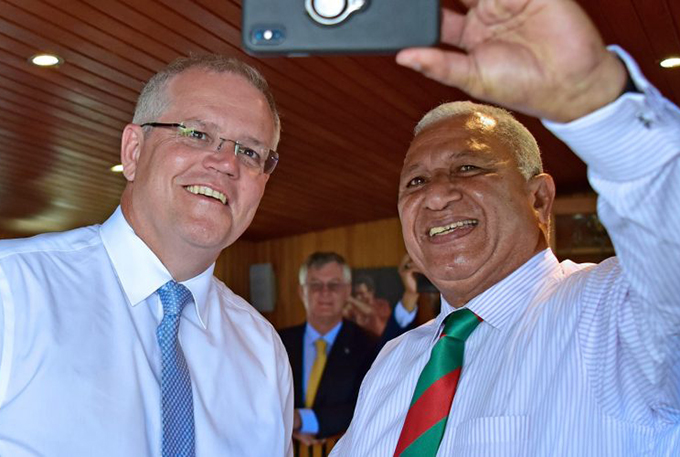
By Emily Watkins
SYDNEY (Crikey/Pacific Media Watch): Prime Minister Scott Morrison announced that the A$17.1 million fund would go to Free TV — a group that represents Australia’s commercial television networks — to create 1000 hours of content a year for broadcasters in the Pacific.
He first announced the plan, with scant detail, last year.
Free TV’s CEO Bridget Fair says they didn’t ask for the money, and the government is still awaiting reports from inquiries into Australian broadcasting in the Asia-Pacific region, and into the use of “soft power” in the region.
READ MORE: Australia commits A$84m to Pacific education
Vanuatu Daily Post media director Dan McGarry told Crikey that Ni-Vanuatu were not upset about the plan, but were not sure what had prompted it.
“People are mostly bemused by the whole thing,” he said. “Nobody’s going to turn down the opportunity to watch Tidelands or Underbelly, but they’re bemused because they’re not sure why that’s the answer to losing shortwave radio to the islands.”
McGarry is referring to the ABC’s 2017 decision to cut its shortwave broadcasts into the Pacific Islands, which followed the government cutting the ABC’s Australia Network in 2014.
Pacific Island governments and submissions to the two inquiries have told the government they want shortwave radio restored.
Saves lives
“It’s like asking for sustenance and getting candy,” McGarry said. “[Vanuatu] Prime Minister Charlot Salwai Tabimasmas has said shortwave radio to our islands from overseas saves lives … During Cyclone Pam we lost more than 95 percent of communication capacity, and it’s at times like that our international partners have the opportunity to step up.”
McGarry said there were initiatives the Australian government could fund that would be more beneficial to the region and to the relationship between Australia and its regional neighbours, including co-production resources for journalism covering the Pacific and better broadcast and production resources.
TNC Pacific Consulting principal Dr Tess Newton Cain said she was disappointed but not surprised at the decision.
“People in the Pacific have said what they want is the resumption of shortwave radio,” she said. “When that was taken away that was a big blow to the people — in a natural disaster it allows people to know there’s something coming and what that is.”
Newton Cain said the fact that Free TV had not asked to provide this content was a “serious snub” to the public broadcasters, ABC and SBS, who had previously had more funding to report and invest in the region.
“The ABC and SBS really do hold the knowledge and reputation and experience in this space, and they’re most recognised in the region. This is something that deliberately excludes the ABC and SBS.”
Newton Cain does not necessarily suggest a return to the Australia Network that the ABC previously had a contract for.
More innovation
“There’s scope for doing things innovatively and more work around digital content and digital broadcasting,” she said. She also supports funding for more co-productions between Australian and Pacific journalists and news outlets, especially for more content about the region to be provided to Australians.
“The Australian audience is really badly served,” she said. “The newsroom decision makers need to realise they are failing to educate and inform Australian audiences on their neighbours in the Pacific.
"They might believe Australian audiences don’t want that, some just don’t understand what’s going on in the Pacific and why that’s important … but now more than ever, we need the Australian media to step up and tell Australian audiences what’s happening.”
Newton Cain also doesn’t buy that the lack of coverage is all down to finances.
“Last year we saw a lot of media organisations camping outside a cave in Thailand. That was a great story and great work. But at the same time, we had 11,000 people from an island in Vanuatu who could no longer live in their homes because of a volcano and there was ‘no money’. It’s not that there’s no money, it’s that the people who make the decisions don’t care.”
The unsolicited funding for the commercial broadcasters follows the government’s $30 million handout to News Corp-owned Foxtel in the 2017 budget for coverage of women’s, niche and emerging sport sport — the same budget it slashed the ABC’s funding by $84 million.
This work is licensed under a Creative Commons Attribution-NonCommercial 3




